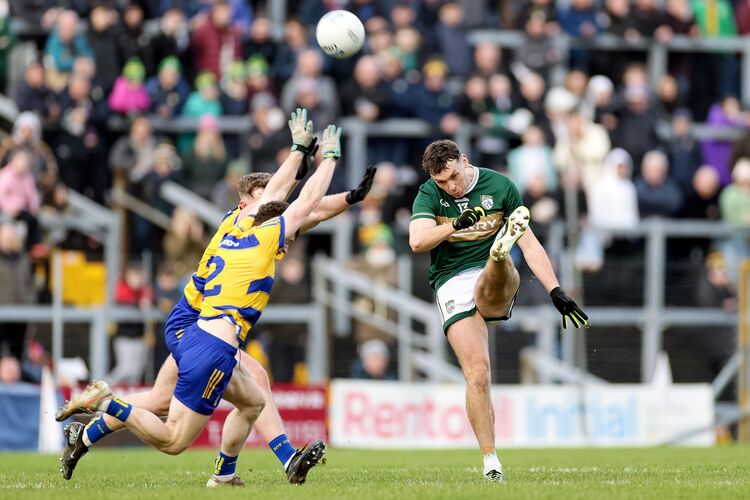Bina McLoughlin.
Film Review / By Peter McDermott
Bina McLoughlin was unhappy that her application to the minister for a house-renovation grant was not successful (no such grant existed). The minister, Pádraig Flynn, fell out with Taoiseach Charlie Haughey shortly afterwards and was expelled from the Cabinet. Bina, AKA the Queen of Connemara, approached politician and friend Éamon Ó Cuív in the street not long afterwards. “I told you,” she said. “I put a curse on him and look at him now!”
“I said to Bina, ‘That’s not right,’” says Ó Cuív, recalling his response in a new documentary. “‘You shouldn’t be putting curses on people.’”
“Will I lift it, Éamon?” she asked him.
“I think you should lift it,” he said.
So, she said she would.
The next year, 1992, Haughey was forced out and new Fianna Fáil Taoiseach Albert Reynolds brought Flynn back in. For Bina, this was confirmation that her powers weren’t to be trifled with.
The 35-minute “The Queen of Connemara” reflects on another age, when an eccentric might participate fully in a village’s social, religious, economic and political life.
The narrator says that “traditions, faith and characters, once centerpieces of Celtic Ireland, are giving way to a melting pot of cultures, technology and commercial opportunities.”
[caption id="attachment_100297" align="alignnone" width="217"]
Bina was indeed a “character,” – the word “eccentric” is not used – but technology, specifically regional radio from 1989 on, helped her become known beyond her native community in Leenane. People would visit her at home, which she often shared with her beloved animals –cats, dogs, geese and sheep. MidWest Radio also allowed some callers the opportunity to ask her to lift her spells.
Bina’s appearance on screen herding cattle in the film “The Field” and being pictured with its stars such as John Hurt additionally helped boost her fame.
Ó Cuív, Fr. Micheál P. Mac Gréil (here he’s Michael McGrail), who grew up with her, and three women – Ann Donald Joyce, Ann Coyne and Martina Gavin – recount their memories of life in Bina’s world.
“She didn’t let fashion or trends or the expectation of others influence her” says Joyce, of the woman who was bestowed with the title of the Queen of Connemara at the Rock Bar, after it opened in 1969, and thereafter some referred to her simply as “the Queen.”
Mac Gréil says that tourists were amazed at her reading of the epistles at Mass, which he would give her in the days beforehand and she would virtually memorize.
“She read it as if she wrote it,” he remembers. “And, of course, that’s the way to read. The full meaning of her reading got across to the people.”
Bina was a font, the priest says, of numerous cures and remedies – nettles in a jar to keep away flies, for instance, and long walks wrapped up in layers of clothing for colds.
Whatever magical powers she had were dedicated unreservedly to Ó Cuív’s cause and she brought a sense of fun and color and added greatly to the camaraderie of his campaigns, which helped him overcome a couple of electoral handicaps. He may have been the grandson of Fianna Fáil party founder Éamon de Valera but he was an outsider, being a Dubliner. He relocated to Connemara on the last day of 1973 having gotten a job with the local agricultural cooperative. (His grandfather had turned 91 in October and had finally left public life a few months earlier after 14 years as president.)
The documentary explains who Dev was historically, but not so well the practical electoral politics of the Irish system, which can pit party colleagues in competition with each other as they search for votes in multi-seat electoral districts, known as Dáil constituencies. And this was related to Ó Cuív’s other problem: his corner of the constituency had a natural hinterland across the border in Mayo; his fellow Fianna Fáil candidates were based in much more populous sections of Galway West. So, he lost at his first two attempts in 1987 and 1989.
But 1992 was different. Michael D. Higgins, Ireland’s current president, topped the poll and got the first seat. “But he was running on his own on the [Labour] ticket,” Ó Cuív says, “I was running far ahead of my two running mates on the Fianna Fáil ticket.”
Ó Cuív learned from the tallymen that he was assured of the second of the five available seats and before waiting for the official declaration, as was the custom, Bina and a supporter with an accordion led an impromptu céilí for the 300 or so supporters gathered at the Galway West count center.
The politician and Bina McLoughlin would remain close. She continued to work long hours as a sheep farmer until she became ill from heart disease; she died on Feb. 16 2001, at age 72.
Much to Ó Cuív’s embarrassment Bina left him and his family her entire estate; but after consulting with his wife and children, he ensured it was transferred to her sisters and other relatives.

The abandoned McLoughlin home. PHOTO: MICK BOURKE
The emotional climax of this film is an audio of Mac Gréil’s eulogy, which drew applause and laughter, and undoubtedly quite a few tears, as he painted a picture of a woman who though she “could be difficult at times,” was also generous, kind, articulate, and funny – a mystic, too, who was “Franciscan” in her love of animals.
Having a handful of people remember a larger-than-life character is a sentimental and generally effective way to summon up the not too distant past. Sometimes, though, the approach here is a bit clunky. For example, Ó Cuív is a good enough storyteller, but his contribution could have been edited in parts. And one would have preferred to hear more from the three women.
However, the charismatic Mac Gréil, a prominent Jesuit academic, activist, and author (most famously of “Prejudice and Tolerance in Ireland” in 1978), is the star of the talking heads.

Fr. Micheál P. Mac Gréil SJ.
Ardal O’Hanlon, the actor who played Father Dougal McGuire on TV’s “Father Ted,” launched “Ongoing Present” by Mac Gréil in 2014, which he described as “part memoir, part history, part utopian philosophy.”
He said, “He’s a man I’ve come to respect for his integrity, his just causes, and for doing something incredibly rare in Ireland: actually practicing what he preaches.”
O’Hanlon added that the book “eloquently outlines his involvement in millions of campaigns, from travelers’ rights, to world peace, the Irish language, prison reform.”
Mac Gréil, who was once an officer in the Irish army, has had a remarkable and long life. Maybe the filmmakers should take on his story next.
“The Queen of Connemara,” an E. Philip Brown production edited by Ed Hannigan, is available on Amazon Prime Video and Vimeo on Demand.







